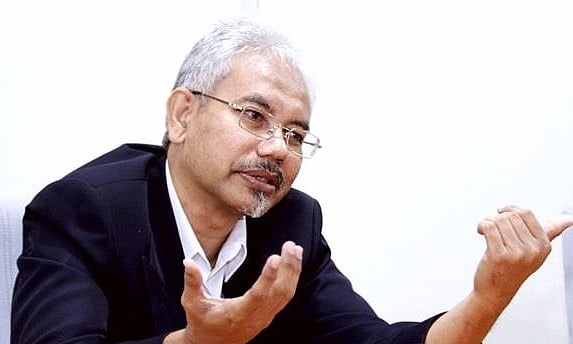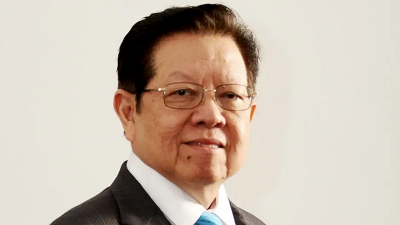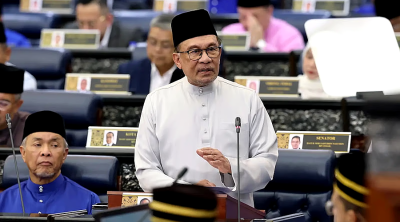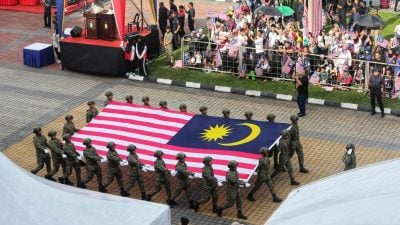
In this article, I will explain what I know, understand and fear from the the three approaches to Islam in Malaysia that compete against each other for the Malay-Muslim minds and hearts which will impact on the idea of nation-building in Malaysia.
The three battle lines of Islam that I am talking about are the Madani Islam propagated by Anwar Ibrahim as Prime Minister, the Ketuanan Islam as propagated by a political party now in opposition, and the Institutional Islam which is the traditional bastion of Islam in the form of departments and offices of religious affairs headed by all the royalty.
The fate of Malaysia as a modern, democratic nation hinges on which Islam will get the upper hand in the thoughts of the Malays in this country.
Madani Islam can be said to be popularized by Anwar Ibrahim perhaps in the 1980s when ABIM was formed as a dedicated entity to propagate and expand the new ideology of Islam as part of a Muslim’s social, political and spiritual responsibilities.
Before this concept was outlined, Islam was only a cultural and traditional entity separated from the political and modern ideas of society.
Islam was locked as merely rituals and worships as the primary means to eternal salvation.
The Madani Islam was introduced as a modernizing force to replace the dangerous ideas of racism and narrow nationalism as the main political force of building a nation.
Madani Islam presents the idea that a Muslim yearns for modernization, progress, wealth and all the good things of civil society and a civilized human existence but framed within the construct of tolerance, compassion and magnanimity as the defining force of spirituality.
Islam was not a constricted or “constipated” force but a liberating, creative and inclusive force to mold the society towards the best of humanity as framed and defined by the Qur’an and the Sunnah or the Way of the Prophet Muhammad.
Proponents of Madani Islam are mostly professionals who learn from books and other non-traditional means often combining the ideas and thoughts of different civilizations and faiths.
On the other extreme, Ketuanan Islam is now presented by a political party claiming Islam as its ideology frames Islam in a “war-like” manner.
The ideology is simple. Islam must be at the top of a political power using whatever means necessary to achieve that end so that it can rearrange life, culture and ideas strictly within its own narrow understanding as defined by religious scholars who were taught in the old curriculum in madrasa.
This ideology presents Muslims as intolerant with any culture, not compassionate towards any faith and despising creative ideas as a threat to the safe traditional and narrow thinking of religious clerics.
This Ketuanan Islam has no place for democracy or parliamentary debates but believe in an all-powerful “ulamak council” to decide the affairs of the society and nation.
In the eyes of these proponents, there is no such thing as an equal warganegara or citizenship but only the idea of non-Muslim Dzimmi in a construct of Abode of Peace or Abode of War.
The recent GE15 shows this concept clearly overtaking Ketuanan Melayu of Umno and BN to be replaced with a more dangerous and extreme construct of religion and God as the primary motivator towards winning political power through corruption, racial and religious instigation as well as fitnah or lies to gain the upper hand.
Ketuanan Islam justifies any means towards a “winning” hand for Muslim Malays.
Then, there is the Institutional Islam to be understood.
Institutional Islam is the official clerics that are given salaries and authority to proclaim, supposedly, any non-political matters of the nation except those relating to the affairs of family and rituals.
However, this realm of restricted affairs are now being expanded by clerics who want to control more power.
The instrument of influence are the official sermons and juristic rulings that are gazetted for Muslims to follow.
Institutional Islam does not have as much popular appeal as Madani Islam or Ketuanan Islam, but what it places in the khutbah and religious verdicts isolates Muslims from the rest of the other communities in Malaysia.
It is my opinion that much of the mindsets of the Malays and Muslims are governed by the isolationist attitude of religious sermons with regards to the knowledge of other faiths that eventually the Malays become easy prey to extremist ideas of the over supremacy of Islam outside the constitutional framework of nation-building.
In is my opinion, among the three “Islam,” the Ketuanan Islam concept holds supreme in terms of influence.
This poses a bad situation for Malaysians and Malaysia.
The counter-narrative of Madani Islam of Anwar Ibrahim must at least take one year to permeate through the Malay society in order to prevent the Talibanizing effects on Malaysia’s social and political fabric.
Thirty years of Islamic reform indoctrination of the society by Islamist as well as the large ageing middle class looking for easy salvation through rituals and worship will be difficult for Madani Islam to take root and cause a ripple effect.
The only hope is that Madani Islam might penetrate the minds of young graduates who then might influence their parents into the idea of Islam as a dynamic and liberating force from a mere safe traditional aspect of worship towards salvation.
The narrative of salvation in Islam must be framed within the idea of hard struggle, innovative thinking for the good, inclusive aspects of cultural acceptance and the dynamism of values of progress, clean environment and the according of dignity to all.
Against this narrative, the easy and fulfilling idea is that Islam should be framed within a siege mindset, and isolationist and safe lifestyle as well as the idea of total supremacy to dictate non-Muslims without any representative dialogue in whatever form.
Unless institutional Islam plays a major role in supporting Madani Islam in its sermons and religious verdicts, Malaysia will become a nation that would be in a sorry state than in its heyday of the 70s under the moderate stand of the BN.
Although there are many Malaysians who wish for the bygone days of the sixties and seventies, I am sorry but those days are really gone and there is no going back.
Malaysians must accept that the three ideas of Islam will be locked in a battle of influence for many decades to come, and the sooner we all admit to this “new normal” the sooner we can influence the tide of battle towards a more moderating force of Islam and nation-building.
We must all act with wisdom, knowledge and political savvy in order to play a role of intelligent bystander nudging the nation here and there within the confines of our own social influence.
(Prof Dr. Mohd Tajuddin Mohd Rasdi is Professor of Architecture at a local university and his writing reflects his own personal opinion entirely.)
ADVERTISEMENT
ADVERTISEMENT








































